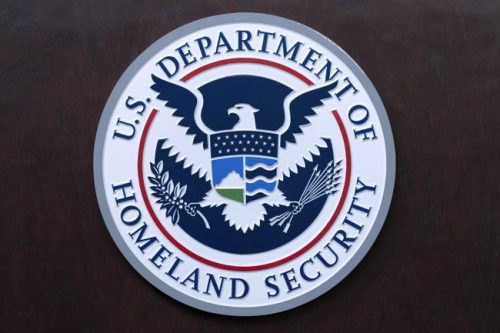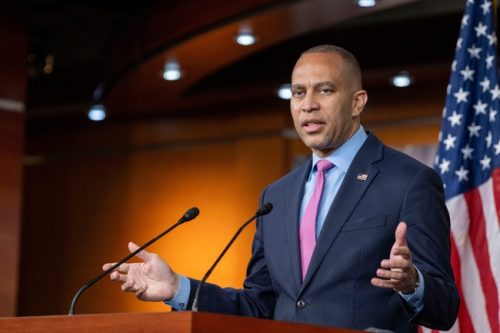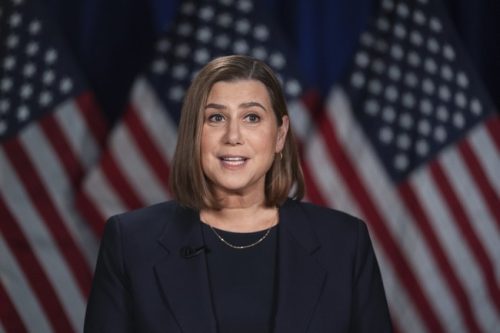University president accused of a range of alleged abuses — from academic neglect to organized diversion of federal resources — in a lawsuit that paints a bleak picture of priorities and oversight at a public HBCU.
I’m not a fan of how many colleges operate these days, and this case is a good example of why. What started as concerns about politicized curricula has turned into accusations that go well beyond ideological bias. The allegations include misused grants, phony reporting, and retaliation against whistleblowers.
The focal point is the University of Maryland Eastern Shore and its leadership, with names like Heidi Anderson and Rondall Allen appearing in court papers. The suits claim the school admits roughly 90% of applicants and struggles with a 17% on-time graduation rate, yet still depends on federal student aid to keep the money flowing. That combination, critics say, creates incentives to look the other way on academic standards and enforcement.
A historically black university whose president is under scrutiny for plagiarism allegations reported on by The Daily Wire is a “criminal enterprise to divert federal and state funds,” according to a federal lawsuit filed by the school’s former Vice Provost for Academic Affairs.
It is one of four similar lawsuits filed in the last few months against the University of Maryland Eastern Shore, its president Heidi Anderson, its provost Rondall Allen, and its diversity, equity, and inclusion czar Jason Casares, that all follow a similar pattern: A faculty member allegedly discovers wrongdoing at the university, and then is retaliated against by the university’s DEI office.
Claims from the suits paint a picture of a university with almost no academic standards, that admits 90% of applicants and looks the other way at cheating and truancy to avoid worsening its 17% on-time graduation rate and keep the federal student loan money flowing.
That description alone should make anyone question what’s being taught and why students are being admitted in the first place. There’s a difference between open-access community colleges and degree-granting institutions that are supposed to hold students to rigorous standards. When an alleged pattern of tolerance for cheating and lax enforcement exists, the whole mission of higher education breaks down.
The whistleblower at the center of one suit is Sandeep Gopalan, a Rhodes scholar who served as the school’s vice president for research and vice provost for academic affairs. His complaint claims that after he reported a scheme to divert thousands of iPads bought with federal grant funds, the university dismantled his program and dismissed Ph.D. students supported by a $4.6 million Department of Education grant. Those are not small claims; they describe federal grant dollars, student livelihoods, and years of research work.
The lawsuit filed July 28 by Sandeep Gopalan, a Rhodes scholar who until recently was the school’s vice president for research and vice provost for academic affairs, said that after he claims to have exposed a scheme by Anderson and other top administrators to steal thousands of iPads, the university axed Gopalan’s program and Ph.D. students in retaliation.
The students were funded by a $4.6 million grant from the federal Department of Education that Gopalan had secured and the university had no ability to terminate, but it dismissed the scholars anyway, falsely suggesting that the Trump administration had cut off funding to the historically black college, he said.
That kind of alleged maneuvering is brazen: dismiss the program, claim the feds cut funding, and then move to cover tracks while research grinds to a halt. Some will call it political theater, aimed at stoking outrage, but the suit alleges more than opportunism. If true, the actions stopped valuable research on cancer, pollution, and artificial intelligence that had been underway for years.
“As a result of this blatantly unlawful act, highly valuable research on cancer, environmental pollution, and AI, representing thousands of hours of research work by the Plaintiff, Ph.D. students and research staff has been stopped,” the suit said.
As part of his duties monitoring compliance for the university’s accreditor, “Gopalan learned that Rondall Allen and Heidi Anderson were embezzling iPads intended for poor minorities and diverting those resources to their cronies. The thousands of iPads were purchased from a federal grant awarded by the US Department of Commerce,” the suit said.
“After being convinced that the scam was organized criminal activity based on direct observation of the devices’ stealthy storage, destruction of evidence, fraudulent documentation, attempts to trick the auditors, the apparent enablement of concealment by University System of Maryland apparatchiks, Dr. Gopalan sent whistleblower letters to federal agencies, the Maryland Attorney General’s Office, and the Board of Regents of the University System of Maryland in June 2024,” it said.
There’s a lot alleged here, and it’s ugly: stealthy storage, destroyed evidence, and fraudulent documentation. Those are not garden-variety administrative lapses; they are the language of white-collar crime. The suit paints a picture where internal watchdogs who raise alarms are punished rather than protected.
Soon after, Anderson began asking if the Ph.D. students in Gopalan’s Futures Institute program, the highest-performing students at the school, were black. “Gopalan explained that students were selected based on strict merit, but the projects had a focus on minority populations. Anderson expressed displeasure,” the suit said.
In December 2024, the lawsuit states he filed additional complaints “about Heidi Anderson and Rondall Allen’s embezzlement, diversion of federal funds, fraudulent reporting of student data to deceive the government, fraud in connection with physical plant and facilities,” including to Chancellor Jay Perman, who oversees all public universities in the state.
According to the complaint, “Anderson and Jason Casares began conspiring to steal Dr. Gopalan’s Futures Institute grant of $4.6 million,” and notified Ph.D. students that their scholarships were being revoked. The Department of Education had to step in, writing that the grant had not been terminated and ordering Maryland to restore it.
Put plainly: the complaint alleges leadership objected to merit-based selections when those selections produced non-black high achievers, then moved to seize the funding behind the program. That reads like a preference for identity politics over academic excellence. When leaders prioritize optics and patronage over results, students and taxpayers lose.
People who push identity quotas while decrying merit are betraying both students and the public trust, and if the allegations hold up, criminal charges should follow. Theft and fraud don’t wear an ideology badge; they’re illegal and destructive no matter the justification. Whistleblowers deserve protection, not retaliation.
These are allegations right now, and the courts will have to sort them out. Still, given the track record of sloppy oversight and politicized priorities at many institutions, it wouldn’t be shocking if similar stories are hiding elsewhere. That reality should make everyone who cares about higher education uneasy.






